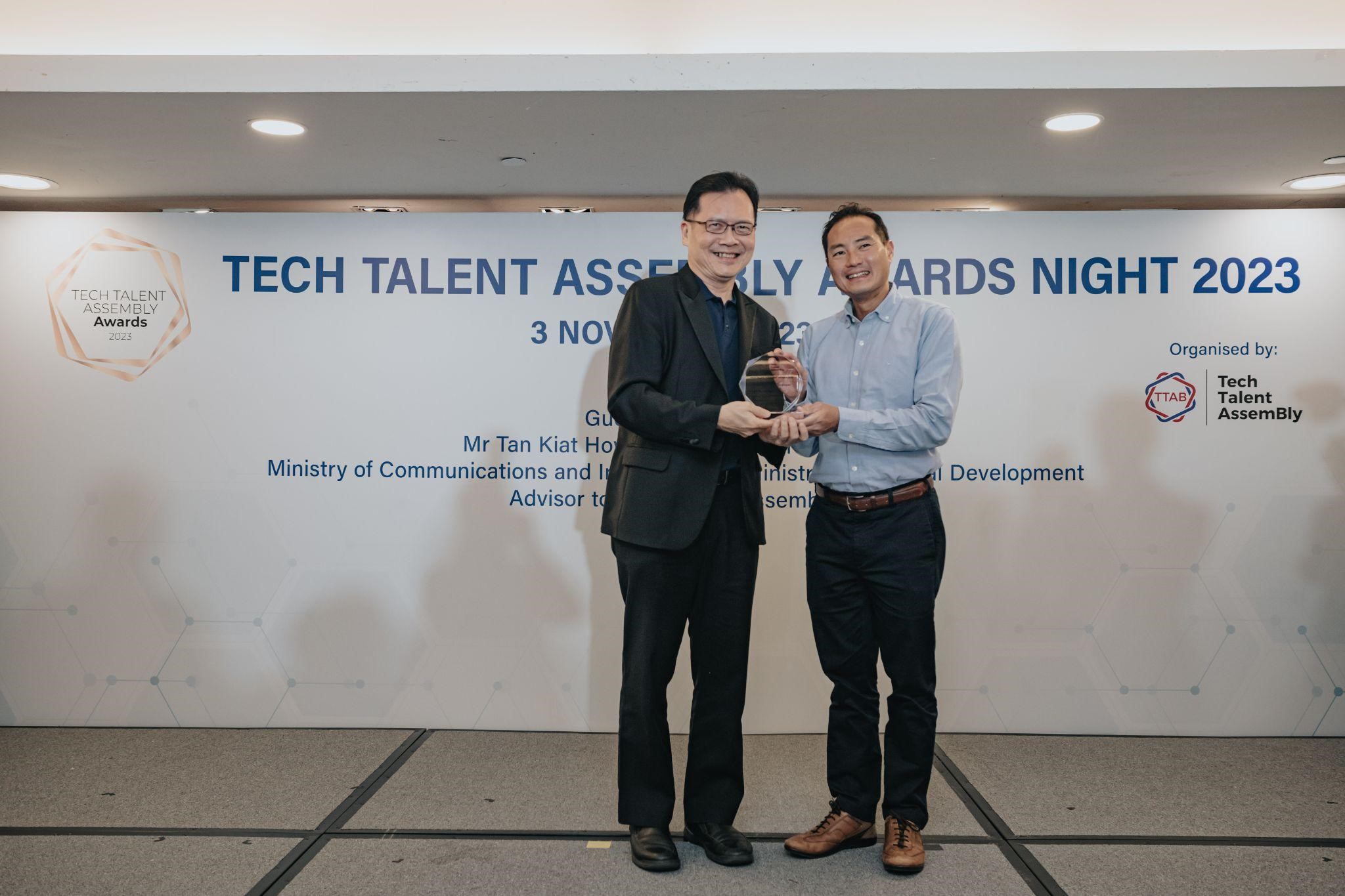Is Computer Science Right for You if It Doesn’t Guarantee a Job?
Today’s undergraduates are keenly aware of the bleak job market that awaits them at the end of their educational journey.
Computer Science Degrees: No Longer Guarantees with AI & Competition
Are computer science opportunities drying up?
Today’s undergraduates are keenly aware of the bleak job market that awaits them at the end of their educational journey. The days of degrees being the golden ticket into a successful career are long gone, although those within the computer science discipline continued to enjoy more optimistic prospects than their peers. But even that gravy train might be drying up soon.
60% of employers were already prioritising technical and transferable skills over plain educational qualifications back in 2021. That was back when the tech companies were still on mass tech hiring sprees, where 142,000 workers were hired in Singapore alone, providing the 1,800 graduates from local universities with a buffet spread of pickings. Fast forward to today, and the same tech companies are tightening their financial belts after layoffs of unprecedented scale, making it difficult for even computer science undergraduates to land internships.
How can computer science undergraduates stand out?
With tech jobs widely regarded as the holy grail of monetary compensation, it should come as no surprise that the number of students enrolled has risen by 57% from 2018 to 2022. Unfortunately, the economy has not been growing in tandem with interest.
Evidently, it’s becoming increasingly important to distinguish yourself from the crowd going into a field as competitive as software development. But how does one distinguish themselves in a highly saturated field? According to associate professor of computer science at the National University of Singapore Ben Leong, it is the undergraduates’ ability to do the task, not the degree itself, that will determine their chances at success:
“Like lawyering and doctoring which require professional skills, there will be people in computer science who major in it, but cannot do the job. They will probably have to find something else. That’s the reality.”
The looming threat of redundancy for junior developers
While some undergraduates are looking to wait out the storm, industry insiders are less optimistic about the tech scene ever returning to its heyday. Instead, signs point towards things taking an even further nosedive. A report by the World Economic Forum estimated 85 million jobs being displaced by AI by 2025. Just like how entry-level jobs in art are giving way to generative AI, junior software programmers also find themselves in a similar position as AI shows potential to do the same logic-based tasks just as competently, or even better.
GitHub Copilot, which has been an industry standard for years, has been alleviating the need for assistant developers by offering code suggestions as engineers type. Most recent iterations are even capable of converting natural language prompts into relevant coding recommendations that adhere to the project's context and style conventions. Similarly, AI programmer AlphaCode, ranked in the top 54.3 percent in a coding competition and achieved a median level placement in ten competitions. For better or worse, the prospects for the below-average programmer seem to be getting bleaker by the day.
How computer science graduates can overcome the odds
Step one to beating your competition is to understand it. If you’re a prospective frontend developer, for example, it may no longer be enough to present fully functional and cohesively aesthetic portfolio web pages at interviews. Instead, you’ll want to be deliberate in your design choices and tailor your portfolio page to specific pain points that a potential employer might have.
Similarly, gaining good placements within Hackathons might grant you interview opportunities, but it is your ability to summarise your thought process and decisions you’ve made, specific to how it can benefit the company from a business perspective, that will ultimately give you a leg up.
Hopes for a new beginning
Despite the negative outlook, there is reason to look forward to changes that the AI revolution will bring. A World Economic Forum report predicted the emergence of approximately 97 million new roles across 15 industries that are better suited to the evolving division of labour between humans, machines, and algorithms. Similarly, Singapore’s Deputy Prime Minister Lawrence Wong echoes this sentiment at a conference, assuaging AI job displacement concerns by similarly declaring his converse belief in AI’s job creation.
Learning to work with AI
While this sounds utopian, such a reality might not set in so quickly. In the meantime, it’s a good idea to continuously upskill and adapt. As they say, keep your friends close, and your enemies closer. Tinkering with AI in your own time can help one understand the possibilities and limits of existing technology, peeling away the veil of mystery and understanding it for what it is — a tool for work. Who knows, it might even give you insight into what the next big AI development could be.
Is computer science right for me?
This article is not meant to dissuade anyone from taking up a degree in computer science or any other field. In fact, there are still fields such as nursing and social work that absolutely require one to receive formal education through recognised routes. Even within computer science, the lack of a degree can hurt one’s chances of landing a job or requesting for a higher salary, even if you do possess the necessary skills required.
In a market that appears to be demanding anything and everything from candidates, it’s important to ask yourself this: “Am I truly interested in computer science?”. Because if the possibility of haphazardly bashing through university and somehow tumbling into a well paying job is no longer available, would you still be interested in pursuing tech?
Graduating is not the end
There’s nothing wrong with wanting to pursue tech as a means to an end, as long as one is aware of what it takes to rise to the top. Just as corporate teams who have switched from Microsoft Teams to Slack hardly ever look back, Singapore’s competitive corporate landscape is one where standard operations of today quickly become legacy practices of tomorrow. Competing within an international hub means that one’s skill set is highly perishable and can only be preserved by means of constant upskilling against industry norms.
If none of what we’ve written so far fazes you, then you just might have what it takes to survive in the tech industry. You can turn these insights into a concrete step towards your dream tech job by following TTAB on LinkedIn, Facebook, or joining us in person at TTAB Career Conversations, where you’ll be notified of the latest networking events, upskilling workshops, and job fairs within the local tech scene.



